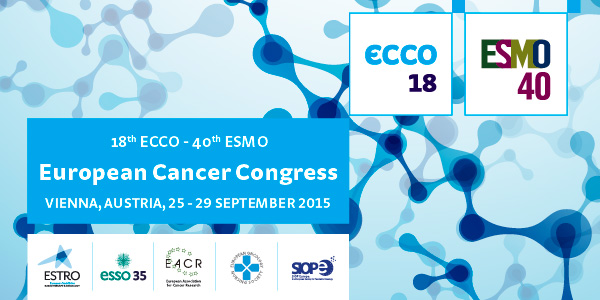Atezolizumab PDL1 Checkpoint Inhibitor will change Bladder Cancer Treatment
LONDON – atezolizumab (Roche/Genentech) is expected to change the standard of care (SOC) for the treatment of metastatic urothelial bladder cancer. That’s the key message I took from a recent interview with Professor Tom Powles (Barts Cancer Institute) on the role checkpoint inhibitors and cancer immunotherapy will play in the treatment of bladder cancer.
 Readers will recall the compelling early phase 1 clinical trial data for atezolizumab (formerly MPDL3280A) that Prof Powles (pictured right) presented just over a year ago at the 2014 ASCO annual meeting: “Making a difference in advanced bladder cancer”
Readers will recall the compelling early phase 1 clinical trial data for atezolizumab (formerly MPDL3280A) that Prof Powles (pictured right) presented just over a year ago at the 2014 ASCO annual meeting: “Making a difference in advanced bladder cancer”
Although other checkpoint inhibitors are in bladder cancer trials, and we have written about the pembrolizumab (Merck) data first presented at ESMO 2014 (“Breathing New Life into Bladder Cancer Treatment”), it is expected that atezolizumab will win the race to market in the US and be the first checkpoint inhibitor to gain FDA approval for the second-line treatment of advanced bladder cancer.
Atezolizumab received breakthrough therapy designation (BTD) in May 2014 from the US Food and Drug Administration for PD-L1 positive metastatic urothelial bladder cancer after progression or intolerance of platinum based chemotherapy.
Earlier this summer Genentech announced in a press release that the IMvigor 210 phase 2 study was positive and met it’s primary endpoint, with a greater response rate associated with higher levels of PD-L1 expression.
 This data will be presented on Sunday Sept 27 as a late-breaker at the forthcoming 2015 European Cancer Congress in Vienna (Twitter #ECC2015), the European equivalent of the ASCO annual meeting organized in alternate years by ECCO and ESMO:
This data will be presented on Sunday Sept 27 as a late-breaker at the forthcoming 2015 European Cancer Congress in Vienna (Twitter #ECC2015), the European equivalent of the ASCO annual meeting organized in alternate years by ECCO and ESMO:
Atezolizumab in patients (pts) with locally-advanced or metastatic urothelial carcinoma (mUC): Results from a pivotal multicenter phase II study (IMvigor 210)
Although we won’t know the trial results until they are presented in Vienna by Dr Jonathan Rosenberg (MSKCC), based on the recent press release it’s widely expected that the positive data from this trial will lead to rapid regulatory approval in the United States.
Subscribers can login to read Prof Powles’ opinion on the role checkpoint inhibitors will play in the treatment of bladder cancer, how this may play out in Europe as compared to the United States, and what the future may hold beyond checkpoint monotherapy.
This interview does not discuss the data to be presented at the 2015 European Cancer Congress, the results of which we will have to wait until Vienna to hear.
To learn more about these sentiments and insights, subscribers can log-in or you can purchase access to BSB Premium Content below…
This content is restricted to subscribers